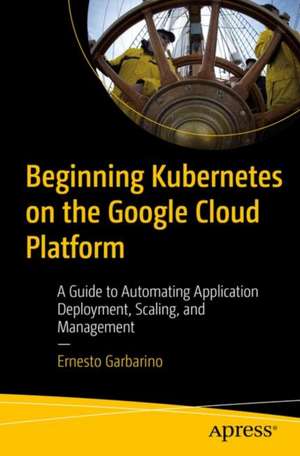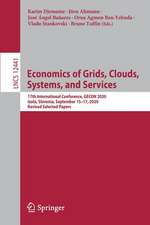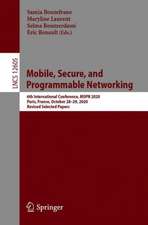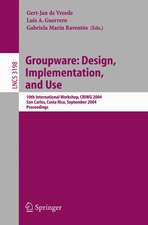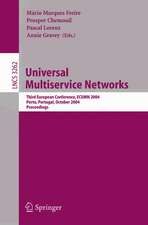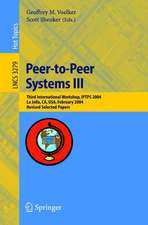Beginning Kubernetes on the Google Cloud Platform: A Guide to Automating Application Deployment, Scaling, and Management
Autor Ernesto Garbarinoen Limba Engleză Paperback – 29 noi 2019
You need only a familiarity with Linux, Bash, and Python to successfully use this book. Proficiency in Docker or cloud technology is not required. You will follow a learn-by-doing approach, running small experiments and observing the effects.
Google open sourced Kubernetes in 2015 and now it is the industry standard in container orchestration. It has been adopted by all leading vendors of cloud, on-prem, and hybrid infrastructure services: Microsoft (Azure AKS), Amazon (AWS EKS), IBM (IBM Cloud Kubernetes Services), Alibaba Cloud (ACK), RedHat (OpenShift), and Pivotal (PKS). Even though Kubernetes is offered by all of the market-leading cloud providers, the Google Cloud Platform (GCP) offers anintegrated shell (Google Cloud Shell) and a $300 credit to get started, which makes it the ideal platform to not only learn Kubernetes but also to implement final production workloads.
What You Will Learn
Who This Book Is For
Beginners with basic Linux admin and scripting skills (Bash and Python). Proficiency with Docker is not required as all examples in the book use off-the-shelf public images from Docker Hub.
What You Will Learn
- Set up a Kubernetes cluster in GCP
- Deploy simple Docker images using monolithic Pods
- Arrange highly available and highly scalable applications using Deployments
- Achieve zero-downtime deployments using the Service controller
- Externalize configuration using ConfigMaps and Secrets
- Set up batch processes and recurrent tasks using Jobs and CronJobs
- Install horizontal (sidecar pattern) services using DaemonSets
- Implement distributed, stateful backing stores using StatefulSets
Who This Book Is For
Beginners with basic Linux admin and scripting skills (Bash and Python). Proficiency with Docker is not required as all examples in the book use off-the-shelf public images from Docker Hub.
Preț: 260.15 lei
Preț vechi: 325.19 lei
-20% Nou
Puncte Express: 390
Preț estimativ în valută:
49.80€ • 54.11$ • 41.86£
49.80€ • 54.11$ • 41.86£
Carte disponibilă
Livrare economică 31 martie-14 aprilie
Preluare comenzi: 021 569.72.76
Specificații
ISBN-13: 9781484254905
ISBN-10: 1484254902
Pagini: 324
Ilustrații: XI, 324 p. 4 illus.
Dimensiuni: 155 x 235 x 26 mm
Greutate: 0.47 kg
Ediția:1st ed.
Editura: Apress
Colecția Apress
Locul publicării:Berkeley, CA, United States
ISBN-10: 1484254902
Pagini: 324
Ilustrații: XI, 324 p. 4 illus.
Dimensiuni: 155 x 235 x 26 mm
Greutate: 0.47 kg
Ediția:1st ed.
Editura: Apress
Colecția Apress
Locul publicării:Berkeley, CA, United States
Cuprins
Chapter 1: Introduction.- Chapter 2: Pods.- Chapter 3: Deployments and Scaling.- Chapter 4: Service Discovery.- Chapter 5: ConfigMap and Secrets.- Chapter 6: Jobs.- Chapter 7: CronJobs.- Chapter 8: DaemonSets.- Chapter 9: StatefulSets.
Notă biografică
Ernesto Garbarino is a consultant specialized in the Digital, Cloud, and DevOps domains. His 20 year experience ranges from working with early start-ups and entrepreneurial organizations during the dot com era to senior consultancy work in blue chip industries including telecoms, logistics, and banking.
Textul de pe ultima copertă
Use this beginner’s guide to understand and work with Kubernetes on the Google Cloud Platform and go from single monolithic Pods (the smallest unit deployed and managed by Kubernetes) all the way up to distributed, fault-tolerant stateful backing stores.
You need only a familiarity with Linux, Bash, and Python to successfully use this book. Proficiency in Docker or cloud technology is not required. You will follow a learn-by-doing approach, running small experiments and observing the effects.
Google open sourced Kubernetes in 2015 and now it is the standard in container orchestration and adopted by Microsoft (Azure PKS) and Amazon (AWS EKS) in the public cloud, and RedHat (OpenShift) and Pivotal (PKS) in the private cloud. Even though Kubernetes is offered by all of the market-leading cloud providers, the Google Cloud Platform (GCP) offers an integrated shell (Google Cloud Shell) and a $300 credit to get started, which makes it the ideal platform to not only learn Kubernetes but also to implement final production workloads.
You will:
- Set up a Kubernetes cluster in GCP
- Deploy simple Docker images using monolithic Pods
- Arrange highly available and highly scalable applications using Deployments
- Achieve zero-downtime deployments using the Service controller
- Externalize configuration using ConfigMaps and Secrets
- Set up batch processes and recurrent tasks using Jobs and CronJobs
- Install horizontal (sidecar pattern) services using DaemonSets
- Implement distributed, stateful backing stores using StatefulSets
Caracteristici
Introduces Kubernetes concepts one at a time Teaches you how to run code and observe effects rather than focusing on theoretical concepts Provides a hands-on approach to understanding StatefulSets so you don't have to configure off-the-shelf stores such as MongoDB or MySQL
